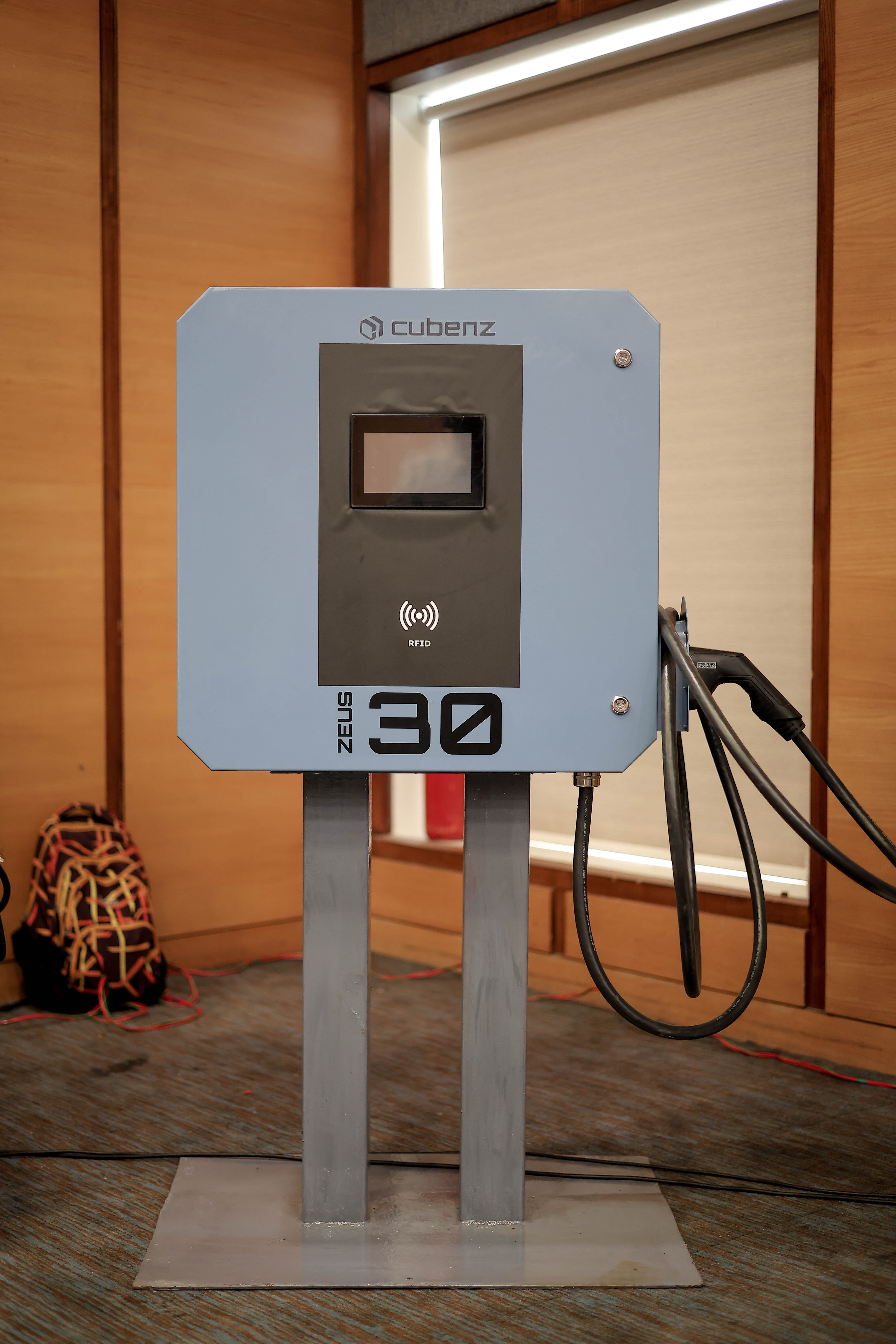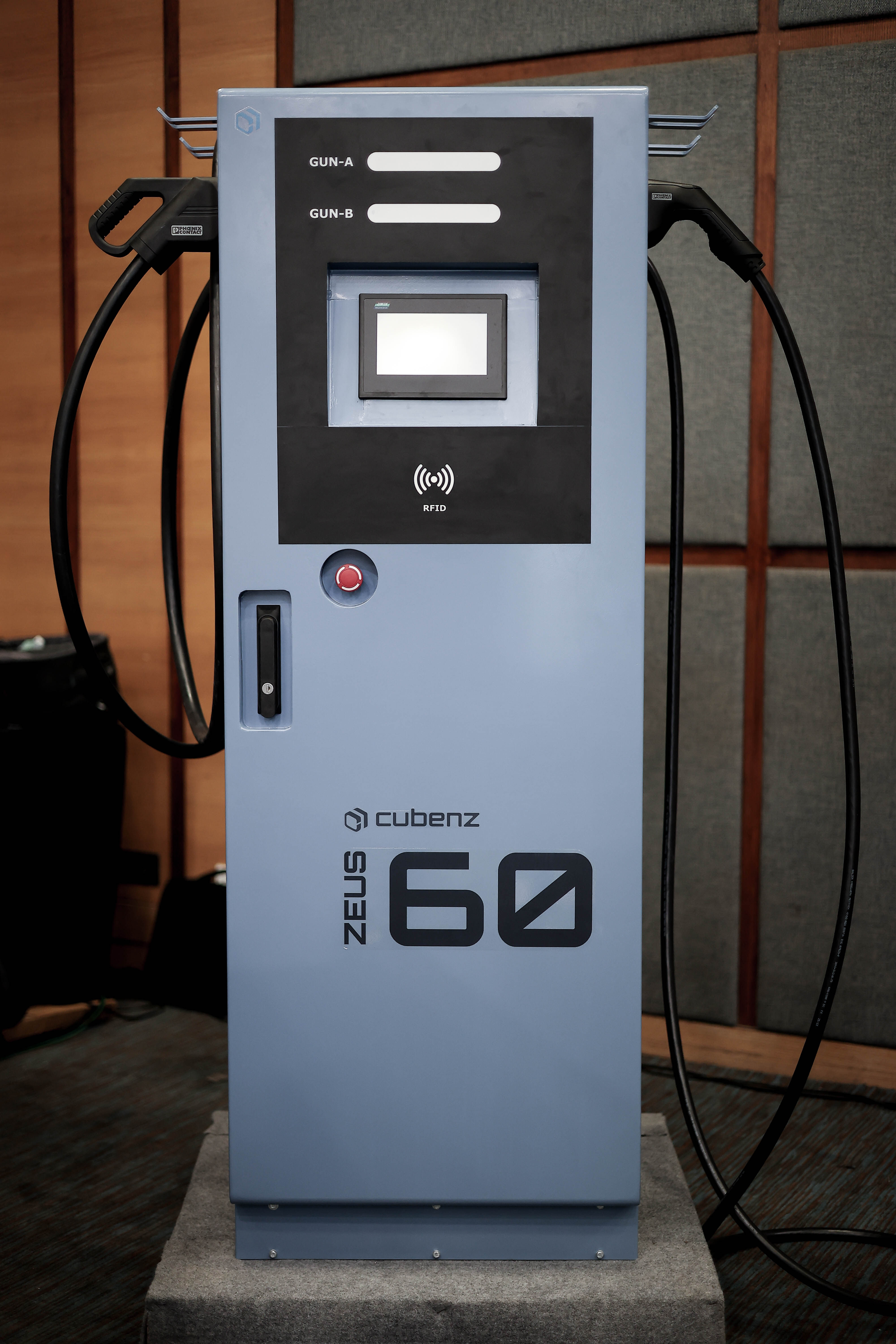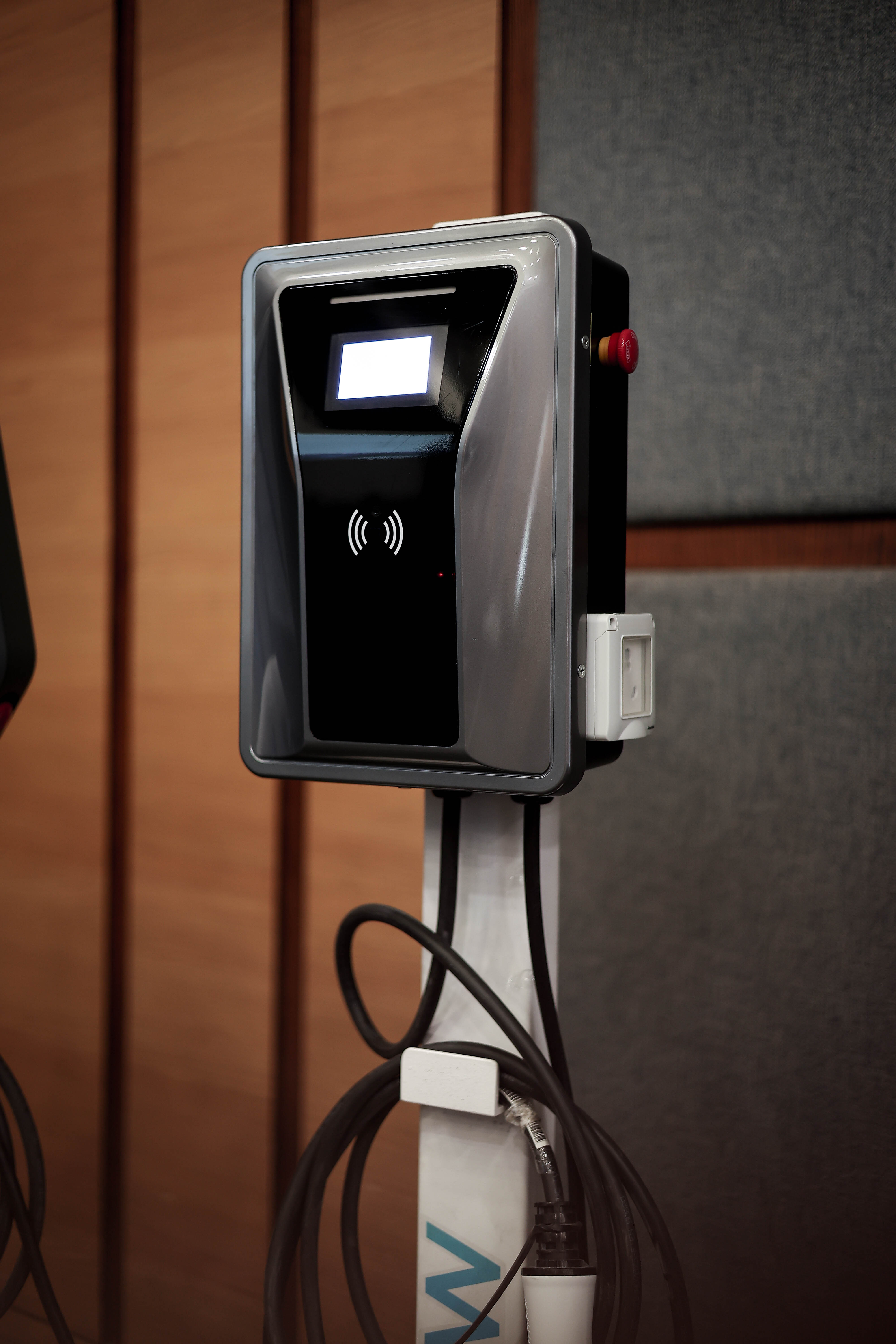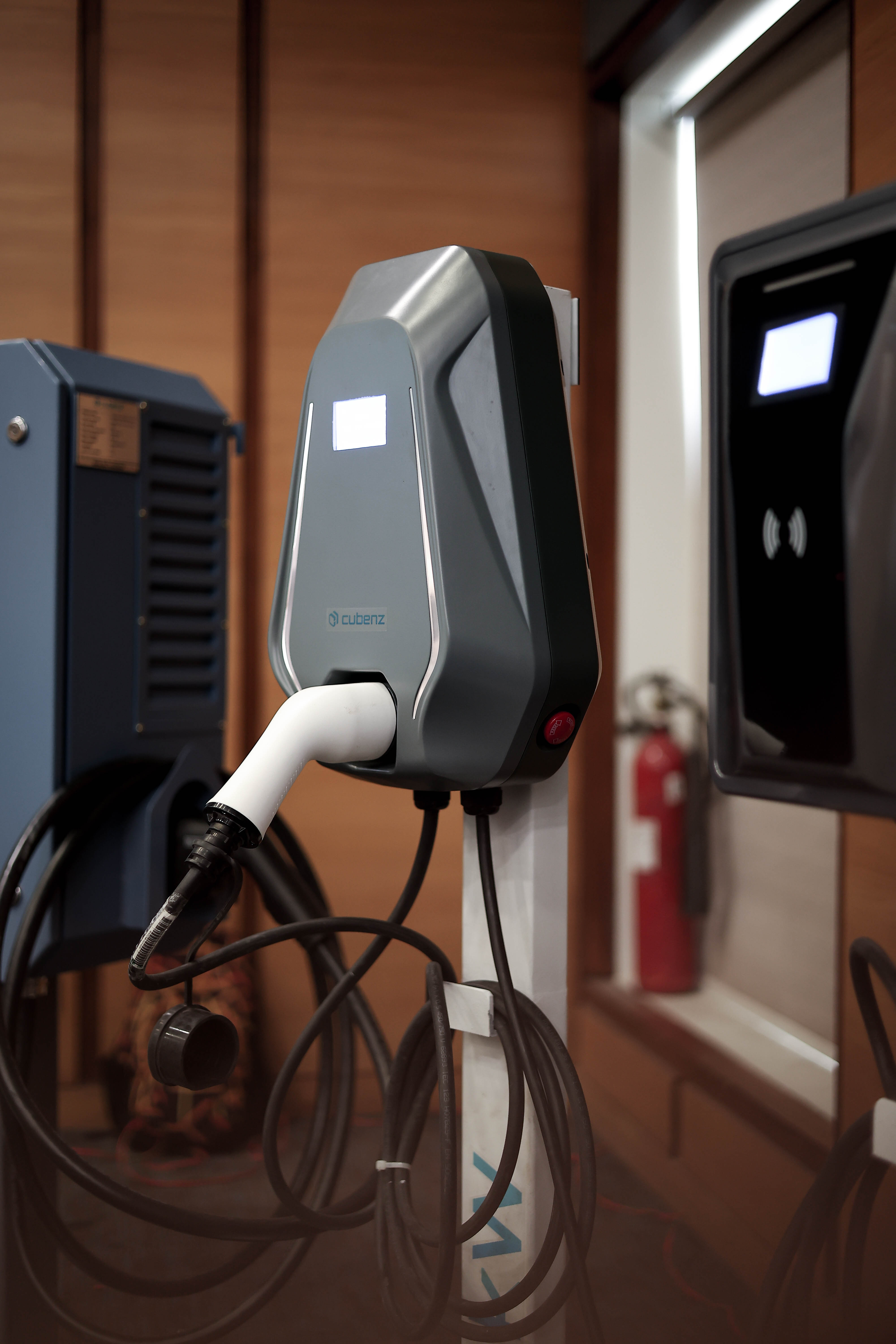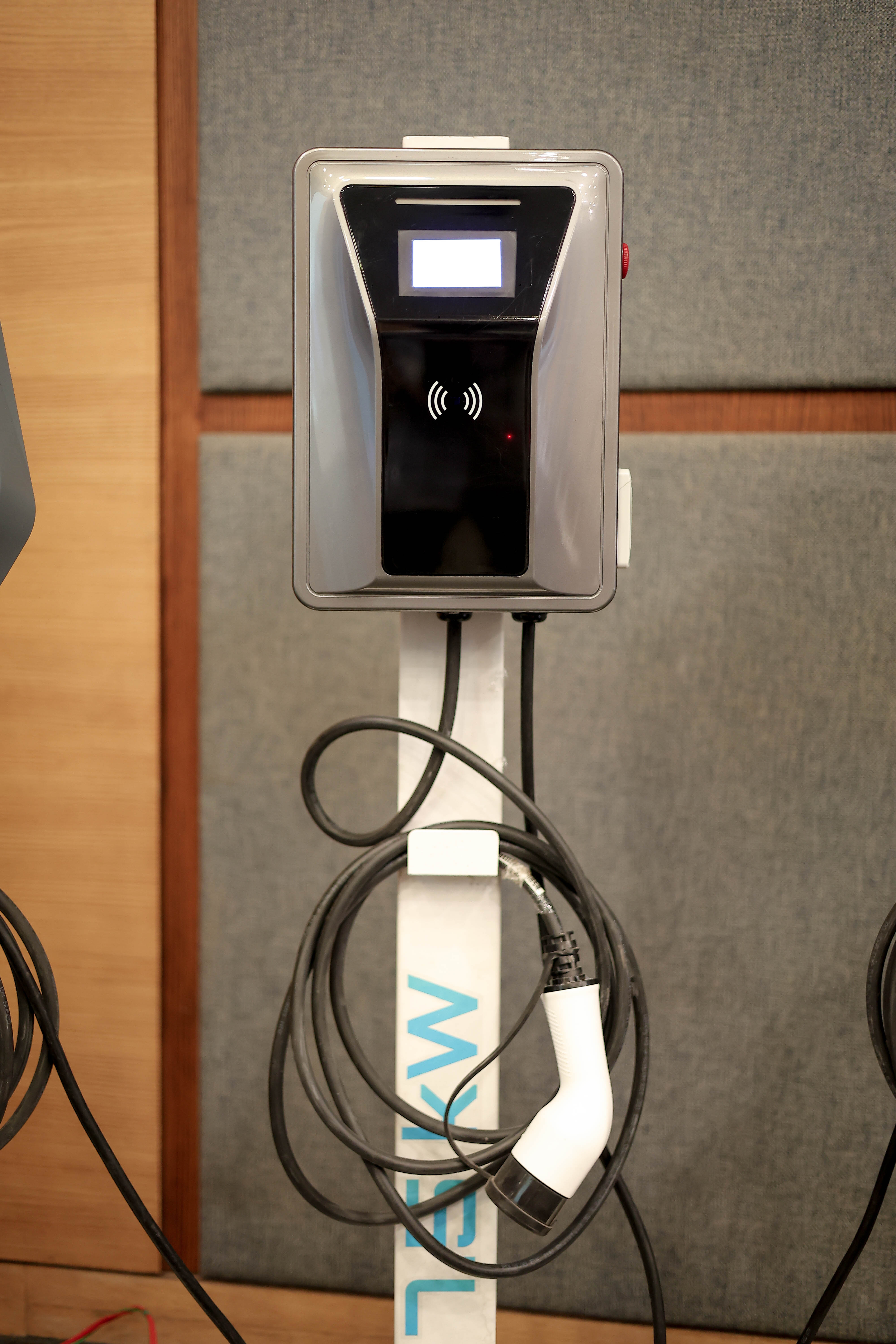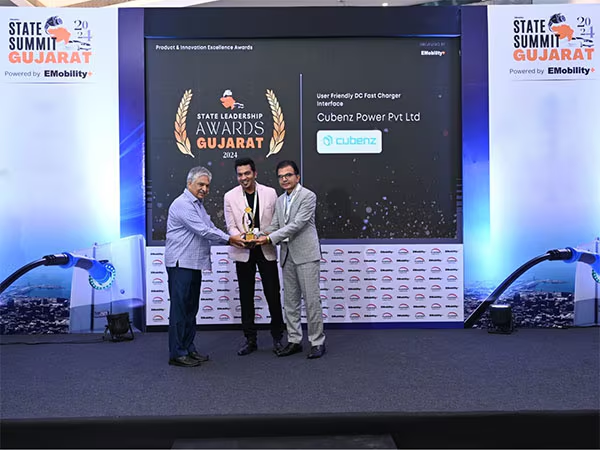Business charging stations (AC)
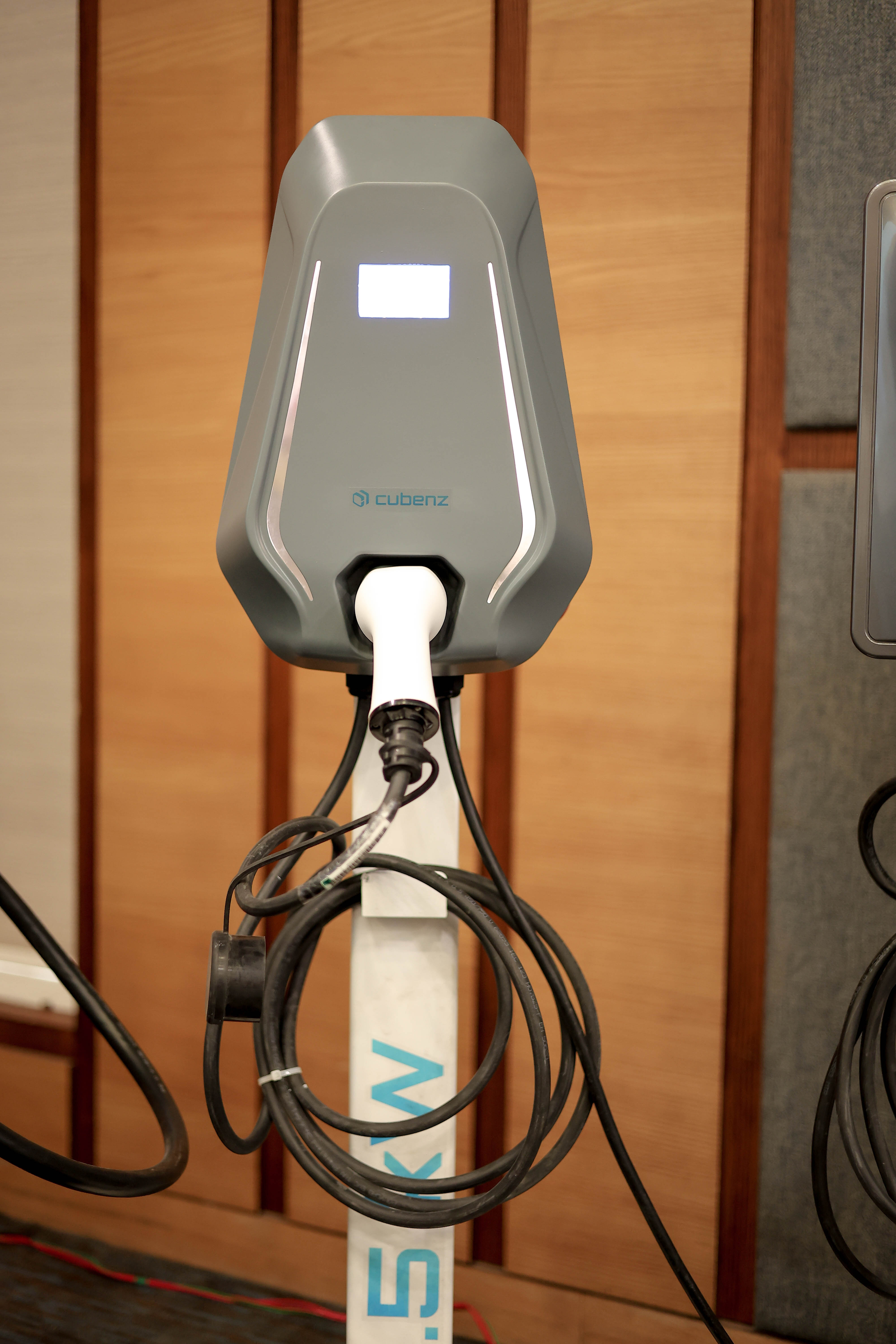
Zeus 7.5 kW Single Gun Charger
Discover our 7.5kW single-phase charger, offering 32A output with IP55 Protection—proudly made in India for unmatched reliability and efficiency.
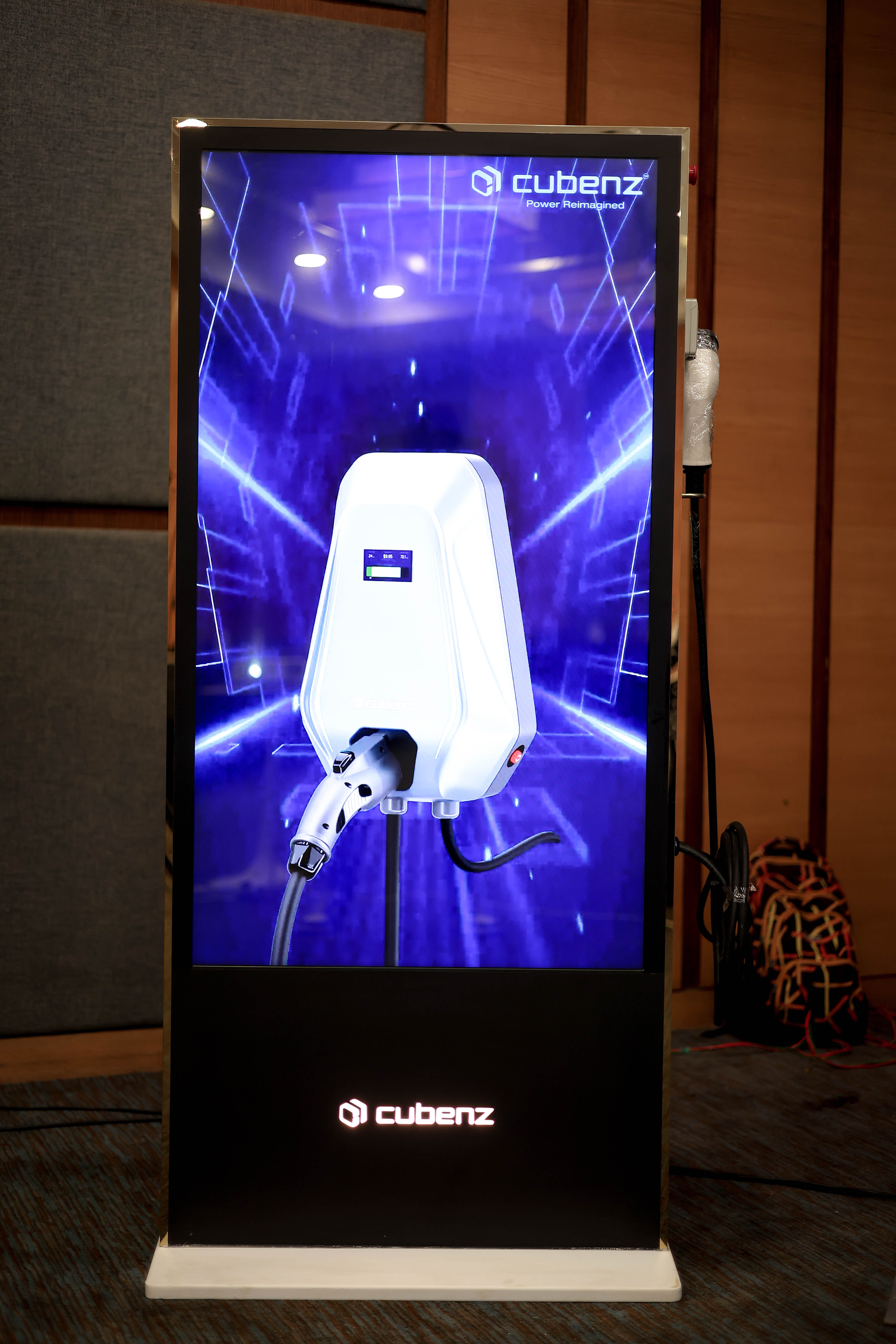
Video Wall 7.5 Kw Single Gun Charger
The video wall charger is a dual gun Type 2 AC charger that provides a power output of up to 7.7 kW. The charger is unique in the sense that it is the first product in the Indian market that allows for still and video media to play on the touchscreen
